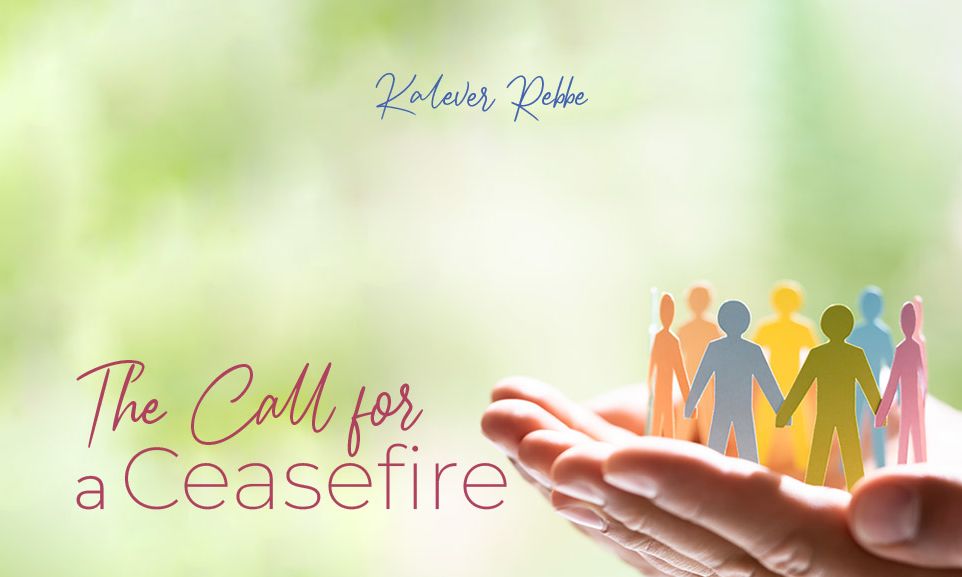
The Call for a Ceasefire
How great is the power of achdut (unity)! If we make a "ceasefire" by stopping the fire of divisiveness and hatred among us and we strengthen our achdut, we will surely merit Hashem's protection and usher in the final redemption.

“And Yaakov became very frightened”… (Bereishit 32:7-8)
Division is Dangerous
When there is divisiveness and hatred among Jews, the Heavens allow the non-Jewish nations and antisemites to rise and wage war against the Jewish people. This is an exacting punishment that is aligned with the concept of “measure for measure”.
The Torah provides a very clear example of this in Parshat Beshalach (Shemot 17:7-8), that when Bnei Yisroel were quarreling with one another, then, because of that division, Amalek was able to attack them.
This is also a very natural dynamic. The antisemites know that while the Jews are divided, they are vulnerable. When the Jews are focusing on their own internal conflicts, they neglect to protect themselves from potential conflicts with foreign enemies. Division is an opportunity for the enemies of the Jewish people to attack while they are weak.
Distracted
R’ Yosef Ber of Brisk, zt”l, was once asked to resolve a bitter argument in a certain town about who the next rabbi should be. The Brisker Rav noticed that the argument had consumed the entire town. Everyone was solely focused on this dispute, to the extent that some basic civil functions were being neglected.
The Rav told the townspeople, “In Parshat Baaloshecha the Jews were complaining about their food. They wanted meat. In response, Hashem told Moshe to gather 70 elders.”
“What is the connection between these two ideas?” asked the Rav.
And the Rav answered: “Hashem was showing us, that if the Jews were busy and preoccupied with the election of the 70 elders, they would forget about their complaints.”
Neighbor Against Neighbor
Division and arguments directly led to the destruction of the Beis HaMikdash. The book Yosifin writes about this at great length (Chapter 79) describing how the jealousy between Yochanan HaGligli and Shimon HaPeritz drove each of them to want to rule over the other. These factions fought. There were tremendous battles. Yerushalayim was suffering a civil war. And when the Roman Emperor heard of this, he instructed his armies not to rush to conquer Yerushalayim because “they will end by killing each other first.” (ibid 75)
The Midrash explains (Eicha Rabba 1:40) that the Roman siege lasted for three years. The Romans were waiting, providing the Jews enough time to fight amongst themselves. And, when they were the weakest, when they were the most divided and distracted, the Romans were then able to conquer Yerushalayim.
Together, We Are Protected
The opposite of this dynamic is also true. Unity amongst the Jewish people inevitably provides protection.
Obviously, the masses are far stronger when they are united. However, this unity, this achdut, is also a segulah. As long as there is achdut, the accusers in the Heavens cannot bring a claim that the Jews are deserving to be punished. As Chazal taught us (Midrash Tanchuma, Shoftim, 1), when there is unity amongst the Jewish people, even if they have all become idol worshipers, there cannot be a Heavenly decree against them. No nation or people can conquer them.
Achdut is the ultimate protection for the Jewish people.
We also see this during the Dor HaFlaga. Hashem punished them for trying to build a tower by spreading them out and providing each of the segments of people with a different language. They would no longer be able to unify around a cause. The lack of communication would cause divisions and arguments, thereby making them vulnerable to being conquered by one another.
Chazal taught (Yerushalmi, Peah, 1:1) that during Dovid HaMelech’s reign there was a tremendous amount of Torah observance. Yet, they lost many wars. On the other hand, during the era of Achav, when the entire generation was wicked and void of Torah, they were constantly victorious in battle. Why was this the case? Because the era of Achav was one of unity; they didn’t speak ill of one another; they did not argue and there were no divisions among the nation. In that merit, no other nation was able to conquer them, even in an isolated battle.
Achdut provides protection even to the wicked, even when the culture of the community is not aligned with Torah and mitzvot.
Redemption Even for the Unworthy
Achdut can also usher in the final and complete redemption even if our actions are unworthy.
R’ Elimelech from Lizhensk, zt”l, said that when the observant Jews will unify and create peace amongst the Jewish nation, the final redemption will begin and Eliyahu HaNavi will proclaim the good tidings. This is alluded to in the pasuk (Yeshayahu 52:7), How beautiful are the feet of the herald on the mountains, announcing peace, heralding good tidings, announcing salvation, saying to Zion, “Your God has manifested His kingdom.” First, we need to have “peace”, and only then can we merit the “good tidings” that will announce the final “salvation.”
Even the Non-Jews Can Benefit
Achdut is so powerful that it can even help the non-Jewish nations. When they are unified, the Jews are in grave danger.
The Shem M’Shmuel wrote (Parshat Ki Teitzei, 5671) that this is exactly what the Torah is teaching us during the splitting of the sea. The pasuk says (Shemot 14:10), “Pharaoh drew near, and Bnei Yisroel lifted up their eyes, and behold! the Egyptian(s) were advancing after them. They were very frightened, and Bnei Yisroel cried out to the Lord”. Rashi explains that “the Egyptians” are written in singular form – the Egyptian(s) were advancing – because they were like one person with one heart. They were unified around their cause. They were one. Therefore, because of the power of that unity, the Jews were very frightened. Therefore, they “cried out” and prayed to Hashem to save them from their looming doom.
This is the deeper meaning of our pasuk:
The angels returned and reported that Eisav was approaching with an army of four hundred men. The pasuk uses the singular form of איש-man. They were telling Yaakov not only were there 400 men in the army, but they were united; they were like “one man.” Therefore, Yaakov was distressed and fearful. He knew that he now needed additional merit of protection. As long as the non-Jews were united, there was a clear and present danger.
To protect himself, Yaakov divides the camp between the “people” – those who were simple and argued amongst each other – and “those who were with him” – meaning, those who could live in harmony and peace with each other like Yaakov. Yaakov created two camps: one that was ruled by division and the other consisted of people who were achdut-focused. Therefore, if the power of Eisav’s unified army would be able to harm anyone, it would be the camp ruled by division, allowing the others to survive and escape.
This teaches us the power of achdut. If we are making a “ceasefire” by stopping the fire of divisiveness and hatred among Jews, and we strengthen our achdut, we will surely merit Hashem’s protection and usher in the final redemption.
***
The Kalever Rebbe is the seventh Rebbe of the Kaalov Chasidic dynasty, begun by his ancestor who was born to his previously childless parents after receiving a blessing from the Baal Shem Tov zy”a, and later learned under the Maggid of Mezeritch zt”l. The Rebbe has been involved in outreach for more than 30 years and writes weekly emails on understanding current issues through the Torah. Sign up at www.kaalov.org.


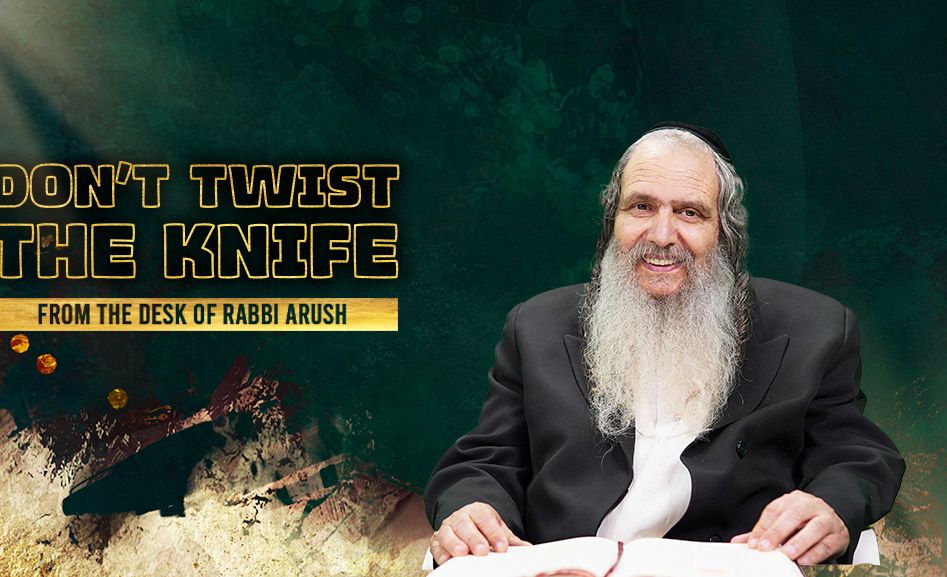
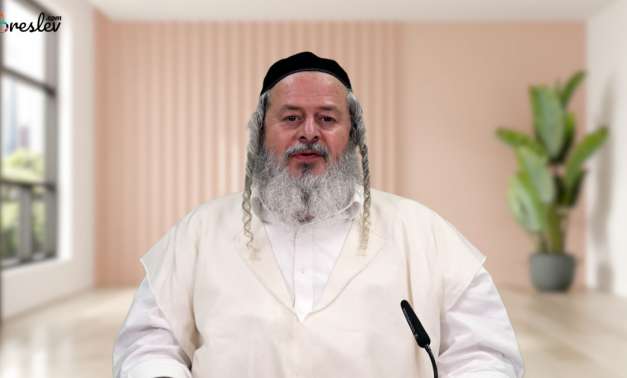


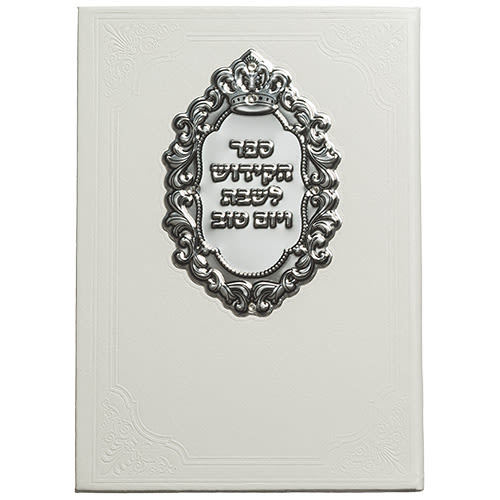
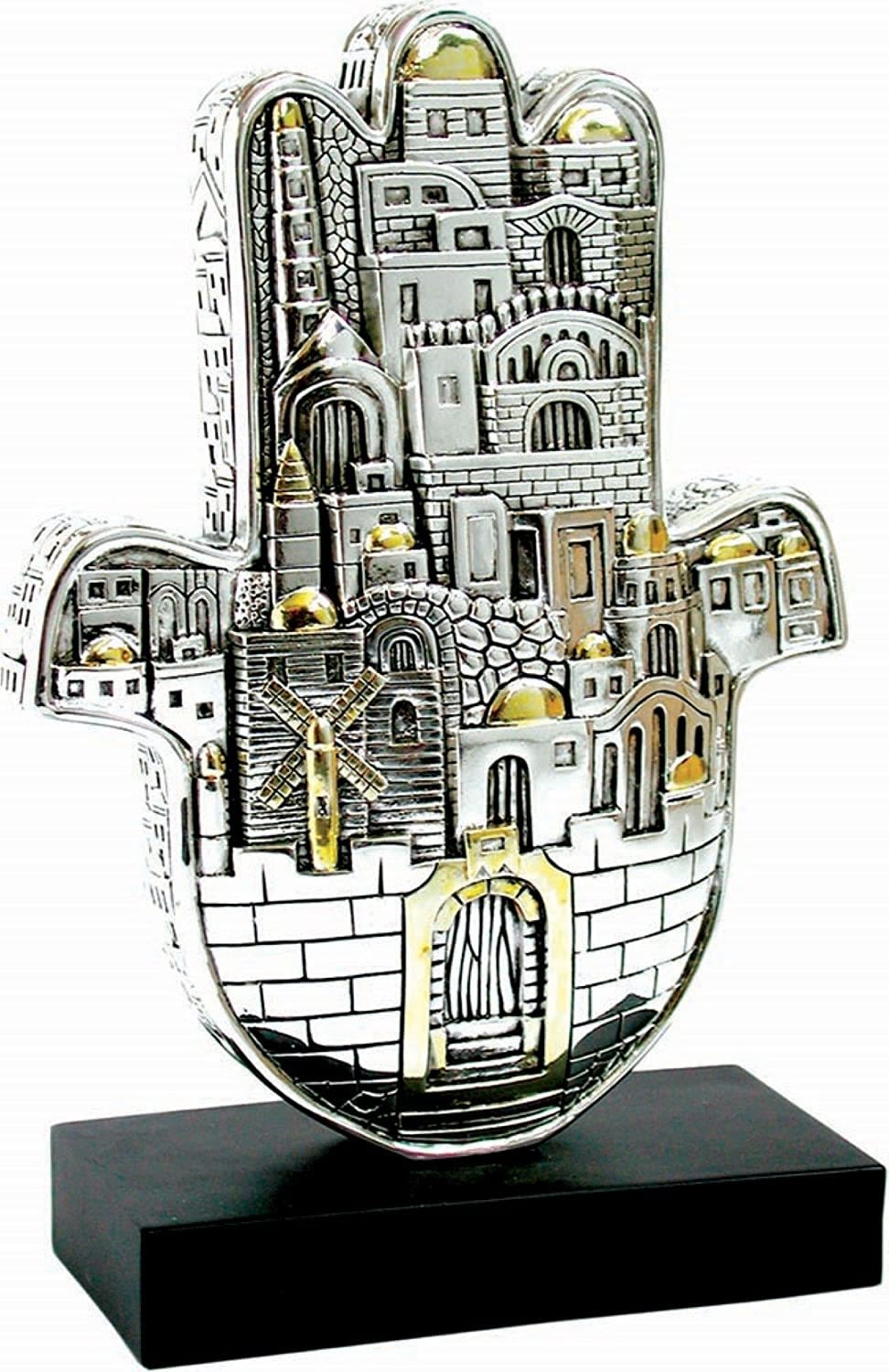


Tell us what you think!
Thank you for your comment!
It will be published after approval by the Editor.